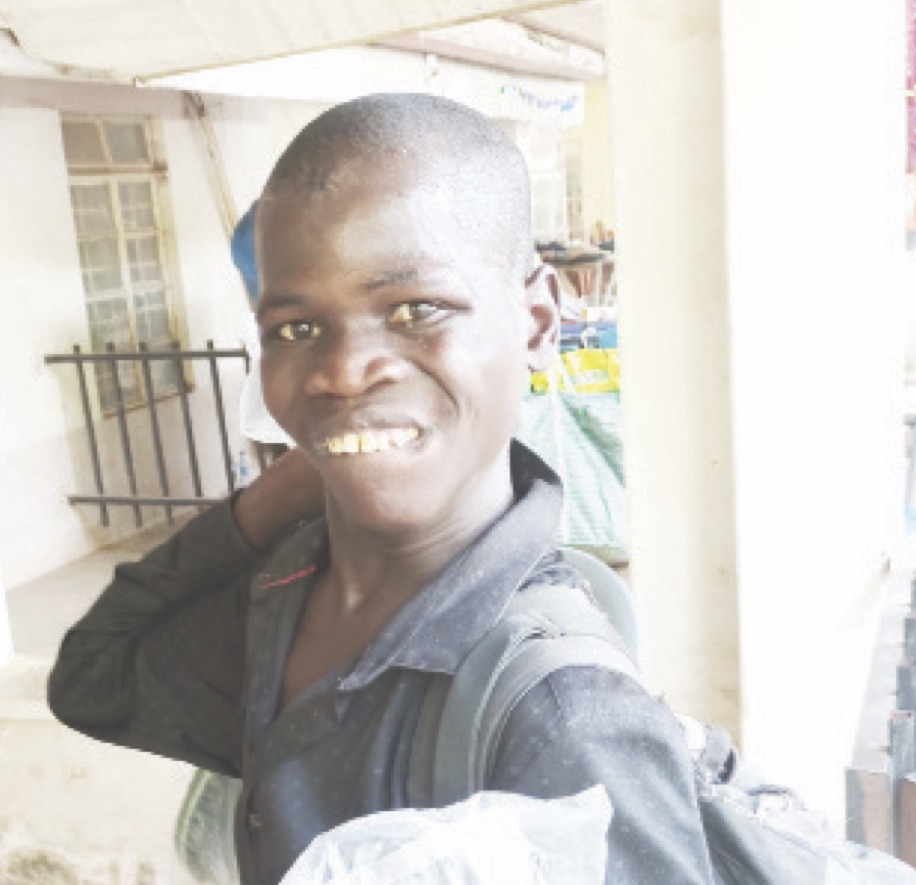…17-year-old Ayuba hawks footwear to make ends meet
•Needs financial support to rent a shop
From Sola Ojo, Abuja
In a heartwarming tale of resilience and determination, 17-year-old Ayuba Sefiu, an autistic teenager from Kaduna, has defied expectations to build a thriving microbusiness selling slippers in the ever-busy streets of Kaduna.
Ayuba lives with his parents at Anya Danmani in Igabi Local Government Area of Kaduna State, in Nigeria’s Northwest. Though he would have preferred to gain higher education from attending a regular school, Ayuba can only attend an Islammiya school at the moment.
Unlike many children in his situation, he has made resolute choice to be different and not be a burden by electing to sell slippers of different qualities and prices.
Ayuba has autism, also known as Autism Spectrum Disorder, which is a neurological and developmental disorder that affects communication, social interaction, and behavior. It is usually characterized by difficulties in social interaction, verbal and nonverbal communication, and repetitive behaviour.
Available information showed that the exact cause of autism is still not fully understood, but research suggests it is a complex interplay of genetic, environmental, and biological factors, including family history and brain structure and function, among others.
The estimated number of people with autism in Nigeria is not known due to limited research and awareness about it. However, experts estimate that autism affects one in every 88 children, yet awareness and support remain alarmingly low even on the part of the government.
Despite Ayuba’s physical limitations and the challenges of living with autism, his entrepreneurial spirit and persuasive charm have earned him a loyal customer base and a good reputation as a role model for young people with disabilities.
Ayuba started his business a year ago when he decided to step out of his immediate environment to see what life is like in other major and back streets of Kaduna, the political hotbed of Northern Nigeria.
Apart from being home to known top political figures in the country, like former Presidents Olusegun Obasanjo and Muhammadu Buhari, Adam Oshiomole, Rochas Okorocha and several others, Kaduna also holds economic stakes in the northern region after Kano.
Moving slowly and wobbling, Ayuba wears easily smiles as he trieds to sell his wares, utilising his unique selling point, which is his ability to persuade prospective buyers to patronize his products.
Sunday Sun learnt that started hawking about a year ago with the support he got from his parents after much persuasion.
He told Sunday Sun: “I opted to venture into business to see how my financial situation and that of my family could improve. I have seen several people who are successful around my neighbourhood, and that is partly responsible for my interest.
“My parents were shocked when I told them my resolve to try and hawk slippers. They were concerned about me, given the difficulty I have walking at home, not to talk about hawking on the streets.
“So, after some time, my parents were able to raise N20,000, to enable me start. That was when I went to the market and bought my first set of slippers, which I sold off within a short time and made a little profit.
“I think the Almighty Allah, who has been there for me all along because even the market people understand and trust me. Now my business is growing. But, I would like to have a shop so I can limit the risk of crossing the highways and express roads daily.”
Giving insight to the challenges that confront him, he said: “Apart from the ones I mentioned earlier, like the risk involved in the crossing roads slowly, the market is not moving in recent times as it affects every business.
“Most times, people appreciate what I do and so, they buy from me just to encourage me even when they don’t really need to” uba said.
He also has a message for autistic children, their parents and caregivers: “The truth is, I didn’t choose to be an autistic child just like every other child. I’m also sure my parents never planned to have an autistic child considering how long it took me to be able to stand on my feet. God has decided to make it happen that way.
“So if I cannot change all that, I think I can change people’s perception about me and this applies to surviving autistic children out there. Sometimes, people around us just need to identify our passion in life and help us to live that dream.
“My dream is to become a big businessman to raise funds to assist any course geared towards reducing the pains of autistic children, and I need helpers to fast track this ambition”, he said.
Coincidentally, Ayuba’s story came at a time the world marked this year’s World Autism Awareness Day, with Nigeria’s First Lady, Senator Oluremi Tinubu, advocating for greater inclusion and support for individuals with autism.
Tinubu’s wife reiterated the importance of recognizing the potential and skills of autistic people, regretting that many still face discrimination in accessing quality education, healthcare, and employment.
Mrs Tinubu stressed that embracing neuro-diversity was not only a moral responsibility but also essential for achieving sustainable development, particularly in line with the UN’s Sustainable Development Goals (SDGs) 4 and 8, which focus on quality education and decent work for all.
She called on Nigerians to work together with the governments at all levels to create a society where every individual has the opportunity to excel, regardless of their neurological differences.
As it is, no serious attention is being given to autism as seen in other biological disorders and that means several other young people Ayuba Sefiu may live their entire lifetime in secluded and hostile environments.
However, Ayuba’s inspiring story serves as a testament to the power of determination and hard work, proving that with the right mindset and support from immediate or remote helpers, anything is possible, regardless of the obstacles.

